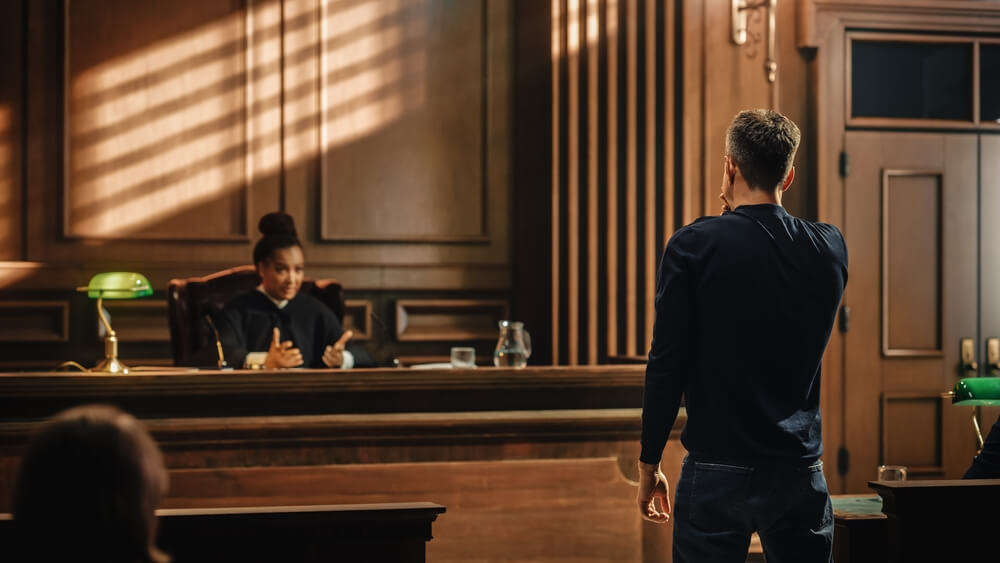Office Location
608 West 12th Street, Suite B Austin, TX 78701
legalassistant@wm-attorneys.com
Individuals in Austin can face both criminal and civil charges for the same set of conduct. If a person is liable in a civil case, they must normally pay the aggrieved individual or entity monetary damages – often through their insurance company – depending on the terms of the settlement agreement or jury trial result.
However, if a person is found guilty or convicted in a criminal case, a sentencing judge could impose various penalties depending on the sentencing guidelines in the applicable state statute. Those penalties could include jail time, monetary fines, probation, and other consequences.
Moreover, in certain situations, a jury could find a criminal defendant “not guilty” in a criminal case, but a judge or jury could award damages against the defendant in a companion civil case. At other times, a civil wrong could lead to a criminal case being filed.
If you are currently pending criminal charges that arose from a civil case, it is important that you retain experienced legal counsel right away. The knowledgeable criminal defense lawyers at the Law Office of David D. White, PLLC, in Austin could meet with you to discuss the circumstances of your criminal charge and help you develop a plan for raising a strong legal defense in your case. We could also negotiate with state prosecutors on your behalf and pursue a favorable plea deal. Finally, our team can represent you in all legal proceedings in your case and help you obtain the best possible result.
For a case evaluation and legal consultation in Austin with a knowledgeable criminal defense lawyer, please contact us for more information.
A civil case is the type of case an aggrieved party files for an alleged civil wrong, such as for breach of contract or injuries suffered in a motor vehicle accident resulting from someone else’s negligence. In a civil case, the plaintiff is the aggrieved party, and the defendant is the alleged wrongdoer. In a criminal case, however, the state prosecutor brings charges on behalf of citizens of the state and files them against the alleged wrongdoer.
If the plaintiff prevails in a civil case, they may recover damages – in the form of monetary compensation – from the defendant or their insurance company. However, if the State prevails in a criminal case (or the accused individual pleads guilty to the underlying charge), the sentencing judge then has a duty to impose penalties against the defendant in accordance with the Texas Penal Code.
The final penalties that a judge imposes in a criminal case may include probation, monetary fines, restitution to the alleged victim, jail time, or community service. Those penalties will usually depend on the underlying criminal charge, as well as the defendant’s prior criminal conviction record, if any.
In a criminal case, the state prosecutor has the sole legal burden of proof. Similarly, in a civil case, the aggrieved individual, or the plaintiff, has the legal burden of proof. The defendant, in both criminal and civil cases, does not need to prove anything or satisfy any legal burden.
Criminal cases are more difficult to prove than civil cases because the burden of proof in criminal cases is higher. In a criminal case, the state prosecutor must satisfy their legal burden “beyond a reasonable doubt” – or beyond a doubt that is based on ordinary reason and common sense. However, in a civil matter, the legal burden of proof is much lower. In civil cases, the plaintiff only needs to satisfy their burden by a “preponderance of the evidence” or by establishing that each legal element is “more likely than not.”
Moreover, in a criminal case, the defendant has more leeway and protections available when it comes to defenses. For example, a criminal defendant may be able to assert that a police officer or other government official violated their Fourth Amendment constitutional right, which protects them from unlawful searches and seizures. They may also be able to allege that the government violated their Fifth Amendment constitutional right against self-incrimination.
Civil matters and criminal matters proceed forward in different courts. Therefore, it is entirely possible that an individual could win a criminal matter (receive a “not guilty” verdict) yet have to pay monetary damages in the accompanying civil case. Similarly, some types of cases that are traditionally civil matters could ultimately be prosecuted if the defendant had the necessary criminal intent, such as the specific intent to deprive an individual of money or property.
If you are currently pending one or more criminal charges that arose from a civil legal matter, it is essential that you contact skilled legal counsel right away. At the Law Office of David D. White, PLLC, we could help you explore your legal options, which may include raising a defense at trial or negotiating a favorable plea deal with the prosecutor. Our team will do everything we can to help you secure a favorable result in your pending criminal matter.
For a free case evaluation and legal consultation with a skilled Austin criminal defense lawyer, please call us at 512-369-3737 or contact us online.
The year 2024 brings significant changes to drug laws in Texas. As an Austin criminal defense lawyer, we stay updated on these changes to protect your rights and navigate the legal system effectively. Below is som...
If a court issues someone a personal recognizance (PR) bond, the person is released from custody pending trial, and they do not have to put up any bail money or collateral upfront. The court will first obtain...
Getting arrested, especially for the first time, can be an extremely confusing experience. Many people who find themselves in these circumstances are unsure of what to do, what to say, and, more importantly, what ...
608 West 12th Street, Suite B Austin, TX 78701
legalassistant@wm-attorneys.com